
2020
The Foundation is taking action in France in view of the COVID 19 health crisis.
The COVID 19 pandemic that struck in all parts of the world has led to an unprecedented health and social crisis.
In this context, the school environment has been disrupted and schools have been closed.
In France, the pandemic and lockdown caused a large number of underprivileged children’s schooling to abruptly halt over night, with a major risk of early school leaving due to a lack of equipment, Internet connection and support. These are essential to follow distance learning courses.
Given the gravity of this unprecedented crisis, the Foundation decided to take rapid action, contribute to the collective effort in France and adapt its support to the first emergency requests, while keeping to its initial mission of listening to the needs of particularly fragile children.
This is why the Foundation has chosen to respond to the call from the Break Poverty Foundation which launched the #Emergency Connection “10,000 computers for vulnerable children” operation in March 2020 alongside Emmaüs Connect and the Mentoring Collective.
In just a few
weeks, the goal of 10,000 computers was surpassed! The operation resulted in
the distribution of over 16,000 computers to young students from disadvantaged
neighbourhoods through the strong collective action of various partners.
The Break Poverty Foundation: Created in 2017, the Break Poverty Foundation supports and identifies programmes to prevent youth poverty. To give every child a chance.
Its programmes focus on the following three priority areas:
To find out more, explore the project report: here
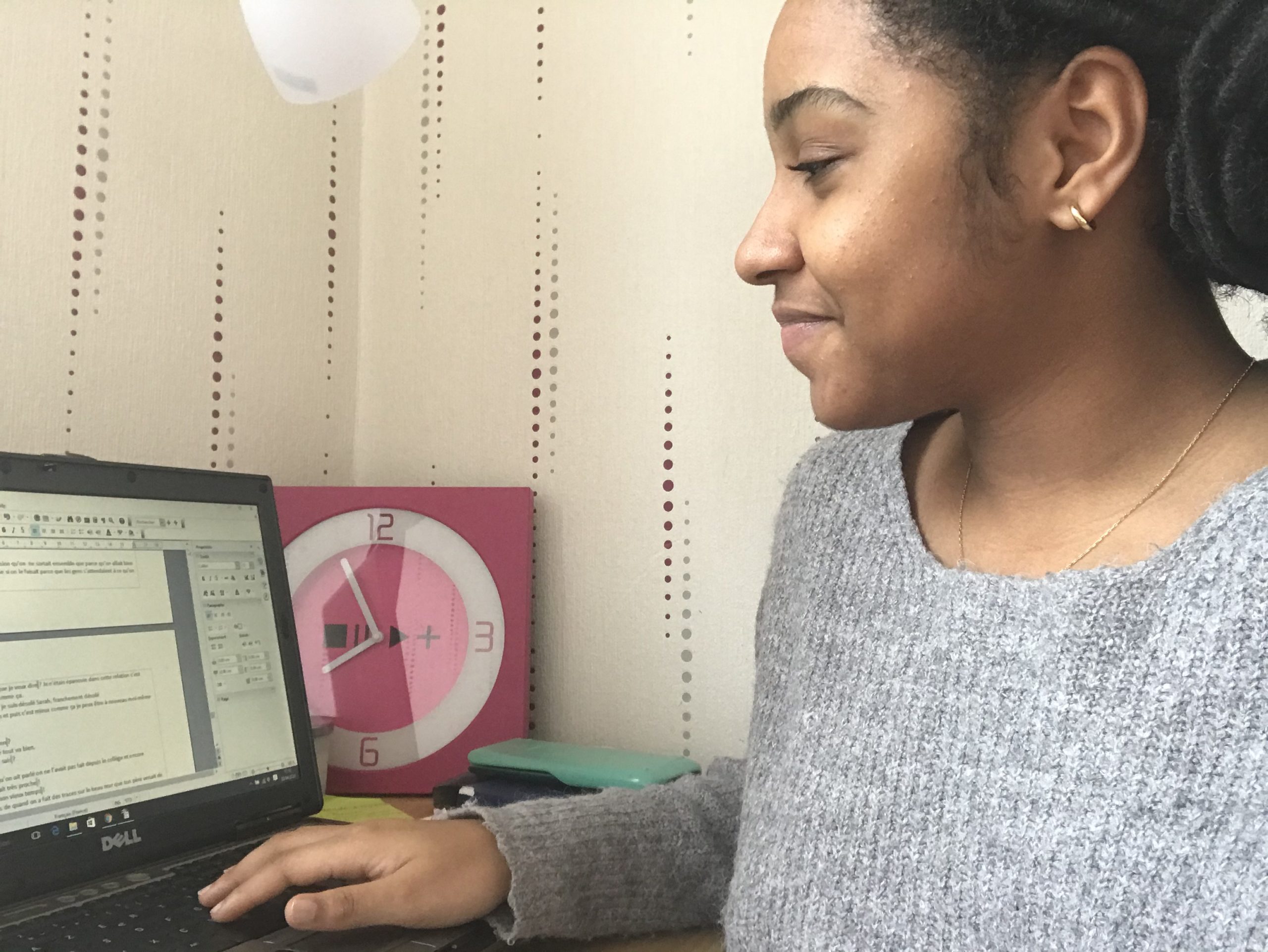
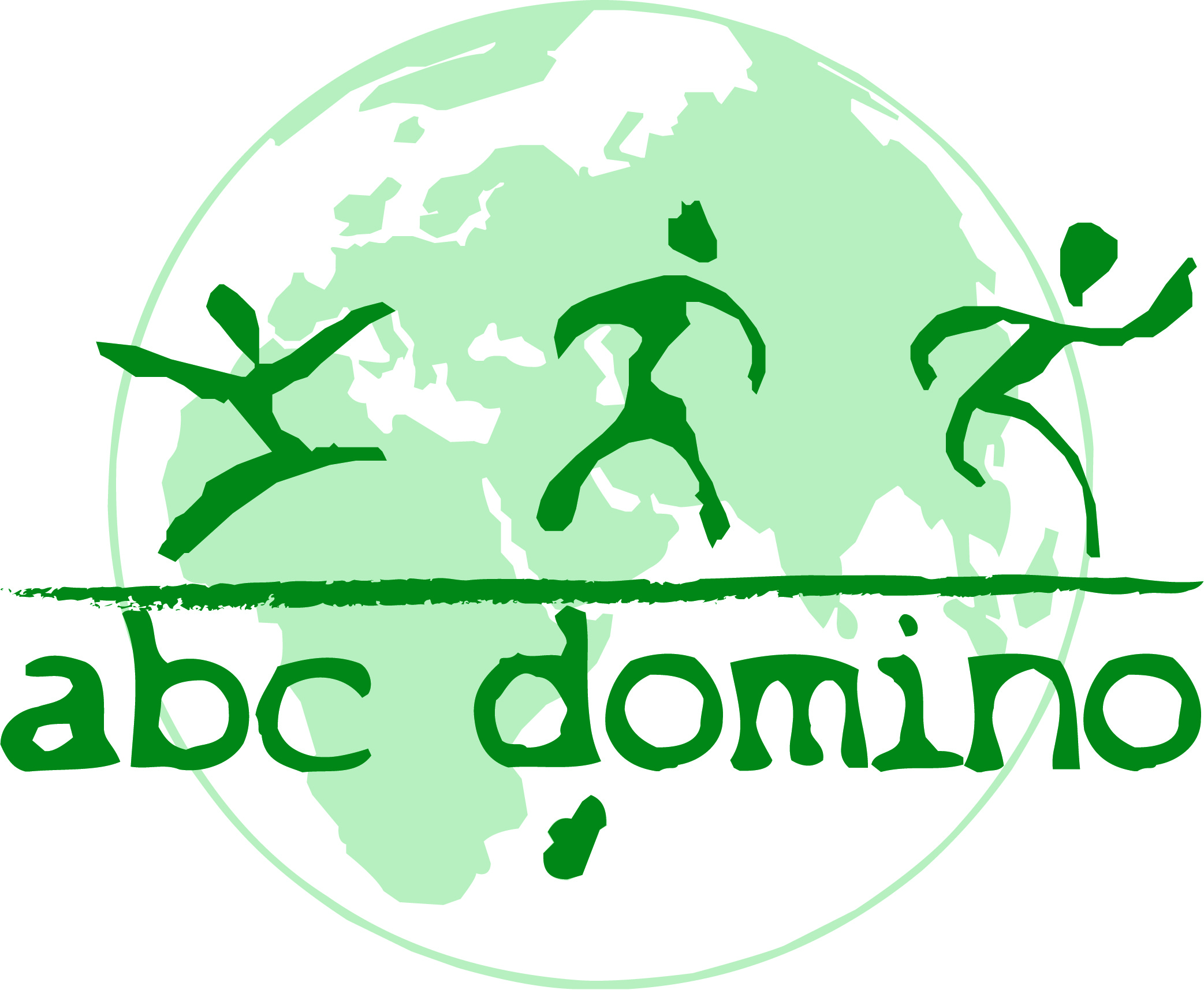
2020
Created more than 15 years ago, the French association ABC DOMINO operates exclusively in Madagascar to implement humanitarian actions, improve living standards for local people and provide access to education. Located in the bush in the Grand Sud, the association has built six primary schools as well as two middle schools and a high school, which it manages. Thanks to its actions, more than 3,500 pupils are schooled there, supervised by a team of 110 Malagasy teachers.
The project: The Foundation wishes to help diversify the food supply of one of these school canteens, by setting up an orchard and a nursery.
This project follows on from the project supported by the Foundation in 2019, thanks to which two school canteens have been built. By renewing its financial support in 2020, the Foundation is helping to improve the food supply of a third canteen. Thanks to the plantations of fruit trees and food plants that provide a nutritional supplement, the 580 primary school children will enjoy a more balanced meal every day.
In addition to the orchard, the nursery will enable families in neighbouring villages to develop fruit trees, which will help improve people’s nutrition in the long term, but also reforest a region strongly affected by climate change.
To discover the work of the ABC Domino for the Malagasy Children, feel free to watch the video (sorry, French video) below:
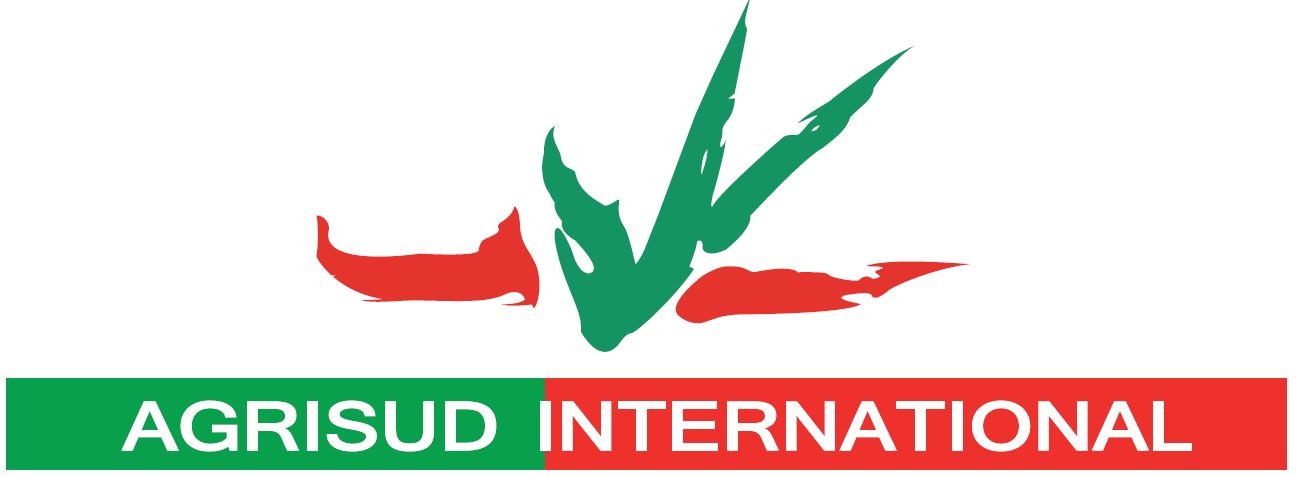
2020
As “the small NGO for a big cause”, Agrisud International works with the most vulnerable families to lift them out of poverty. Through the projects it implements, it trains and supports small-scale family farms (TPEs) in the sustainable development of their activities. For almost 30 years, Agrisud International has supported more than 70,000 small-scale family farms in 26 countries in Africa, Asia and South America. In Madagascar, Agrisud operates in the Itasy Region particularly where the malnutrition rate is high.
The project: The Foundation is supporting the deployment of an integrated approach in Madagascar, combining agriculture and nutrition to improve the daily nutrition of families.
Supported since 2017 by the Bel Foundation, Agrisud is implementing the second phase of an ambitious community project based on the LANN Method (Linking Agriculture, Natural resources management and Nutrition). By combining agricultural, food and nutritional objectives, the ambition of the NGO and the Foundation is to reduce malnutrition among nearly 1,000 families and over 4,000 children in a sustainable way.
Noting that increased agricultural incomes among families was not necessarily accompanied by a systematic improvement in their diet, the NGO carried out a household survey. Following this diagnosis, the NGO developed tools and offered support for agricultural production and nutrition awareness sessions to families in the region. Within households, mothers of “Volunteers in Nutrition” families then volunteered to share their learning and good food practices in their respective communities, thus ensuring the sustainability of the project’s achievements.
With the Foundation’s support in 2020, Agrisud continues to implement awareness-raising and support activities for families (cooking demonstrations, savings groups, training in food processing and preservation, etc.) while broadcasting the LANN method to new families in the region.

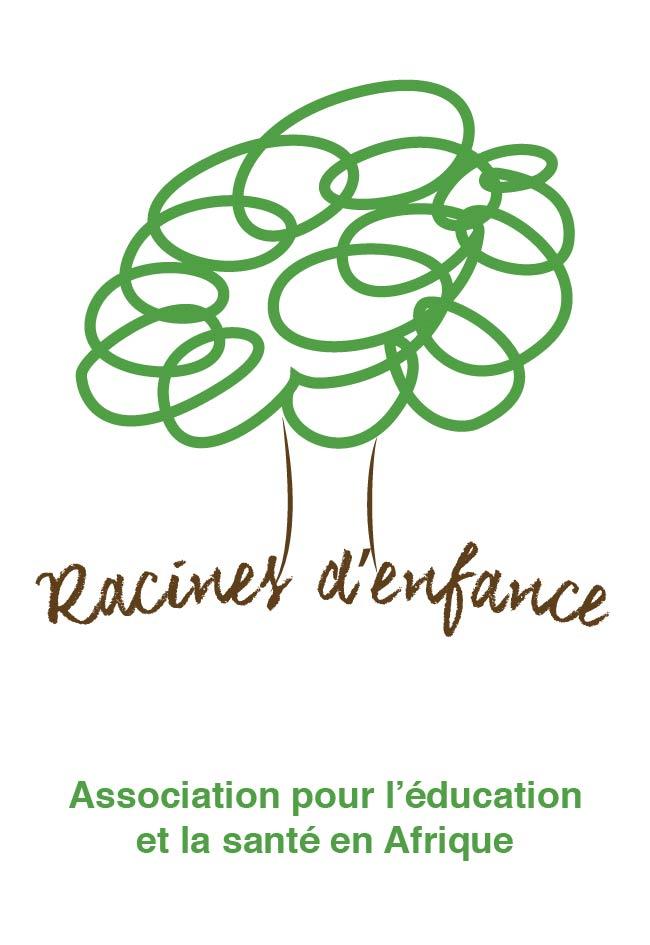
2020
The French association Racines d’Enfance is dedicated to supporting children’s schooling and health in Senegal. Working exclusively in rural areas in close collaboration with local authorities, it has built ten nursery schools there since 2004.
These pre-school facilities, which are very rare in rural areas, provide a safe environment for children aged 2 to 7 to assist them in their first steps towards school.
Since 2014, the association has developed specific activities around school canteens in each of these schools, offering a balanced lunch to children every day.
The project: The Foundation is renewing its support for the association to enable it to consolidate the food supply of nine nursery schools in Senegal in the long run, by strengthening canteens and setting up vegetable gardens.
This project follows on from the partnership formed in 2019 between Racines d’Enfance and the Bel Foundation to strengthen the system of school canteens in five pre-schools. The Foundation’s support in 2020 therefore continues this partnership by allowing the construction and development of additional infrastructures, playgrounds for some schools, and refectories or storage facilities for others. The Foundation’s support also allows vegetable gardens to be established in nine schools. Each of these schools will also be provided with foodstuffs to supplement the vegetable garden produce, so that 900 schoolchildren can enjoy a balanced daily meal.
Through this project, Racines d’Enfance and the Foundation hope that each of the ten nursery schools will eventually be able to consume and resell their vegetable production and thus be self-sufficient in terms of food. To know more about the supported schools follow these links: Saal school, Wassadou school, Koar school, Ndoss school, Koumbal school, Keur-Assan school.


2020
Founded in 1990, the international solidarity association Un Enfant par la Main supports nearly 150,000 disadvantaged children and their families in community development programmes in 18 countries in Africa, Latin America and Asia, through child sponsorship and in close collaboration with local partners. In Madagascar, the precarious living conditions added to the food shortage period from January to April have important consequences for family income, nutrition and children’s schooling. Many children go through this period on an empty stomach and can no longer attend school as normal. Since 2019, Un Enfant par la Main has been supporting 13 schools in the Antananarivo province in collaboration with its local partner Amadea, and has enabled the setting-up of school canteens to distribute meals during the lean season.
The project: In Madagascar, the Foundation is supporting an integrated local development programme that combines the support for 200 local small farmers with improvements to 11 school canteens.
The project supported by the Foundation creates decisive interaction between schools and the agricultural sector to enhance canteens’ self-sufficiency. It relies on supporting small local agricultural producers to improve supplies to canteens, equipping canteen infrastructures and organising awareness campaigns on good hygiene and nutrition practices. The project’s success is also based on the extensive efforts of parents.
Under this programme, 200 farmers will benefit from agricultural training and equipment that will enable them to improve their income in the long term and guarantee a more regular supply to schools.
In terms of schools, the Foundation’s financial support also enables the regular nutritional and health monitoring of 200 children, carried out by a doctor and a nurse. These children will thus enjoy hot meals and snacks during the lean season. The menus will be developed in collaboration with the Malagasy National Nutrition Office (ONN), to best meet children’s daily needs.
By supporting this project, which involve many local actors and encourage short circuits, the Foundation intends to support improved food security for 1,000 pupils during the lean season, and to maintain attendance rates in schools.
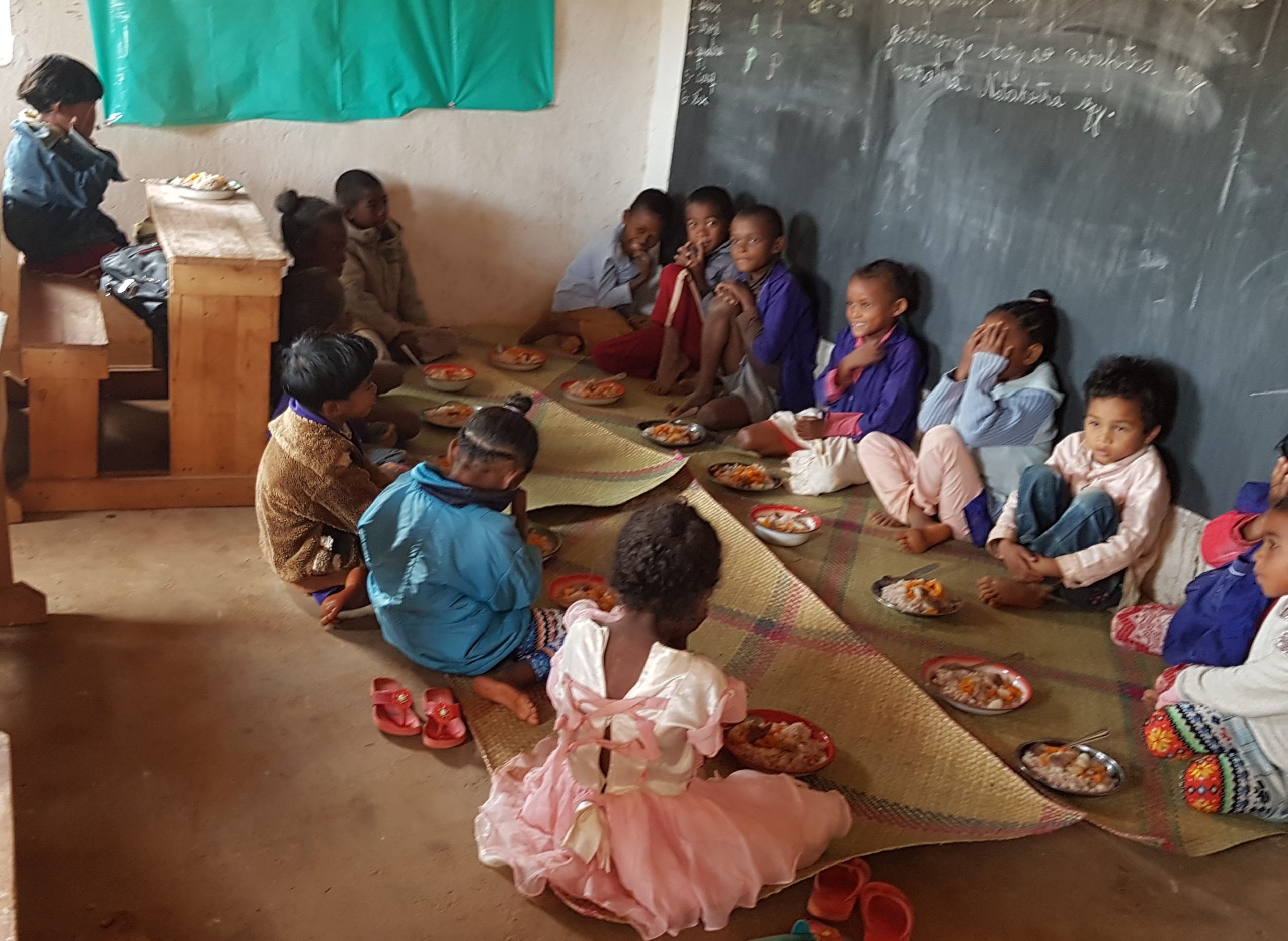
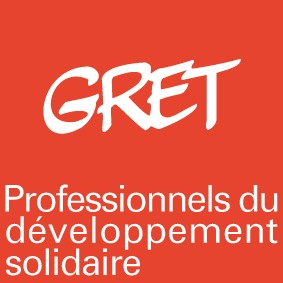
2020
GRET is an international NGO whose mission is to improve living standards for local people and promote more equitable and cohesive societies. Its 650 employees work in nearly 30 countries in Africa, Asia and the Caribbean to enable particularly vulnerable people to regain control over their lives and their immediate environment. Having operated in Burkina Faso since 2003, GRET works with research institutes and experts to support the implementation of solutions adapted to the challenges of malnutrition, food security, and sustainable development. In this country, where 30% of children under the age of five are malnourished, the NGO is working to promote the consumption of local milk among consumers, institutions and public authorities. At the same time, it is also providing support to small livestock farms and mini-dairies to enable them to improve their productivity and milk quality.
The project: Alongside GRET the Foundation is committed to fighting child malnutrition through the distribution of local dairy products in seven schools in Bobo-Dioulasso, Burkina Faso.
This project, which will be implemented over a 12-month period, has a twofold ambition: help farmers and mini-dairies to develop their sector, structure themselves, and create a collection and distribution circuit strong enough to offer quality local dairy products in school canteens, while strengthening food security for children. More specifically, the Bel Foundation’s financial support underpins the development of twelve mini-dairies, members of the Neema cooperative, and a programme for processing local milk into yoghurt that will be offered twice a week to 4,660 children aged 6 to 12, in addition to their lunch.
This pilot project impacting seven school canteens is being run in collaboration with the municipality of Bobo Dioulasso and the provincial directorate of national education, literacy and promotion of local languages. It will help to accustom children to the taste and quality of local milk and assess how children appreciate local milk and whether the solutions and services offered through this programme correspond to the expectations of local people. In such case, it could then be deployed more widely.
At the same time, training and awareness-raising sessions on nutrition and the importance of “consuming locally” will be given to more than 80 teachers, as well as their students and parents’ associations.
Within the framework of this project, GRET and the Foundation aim to develop the local dairy industry and bring lasting improvements in student nutrition.
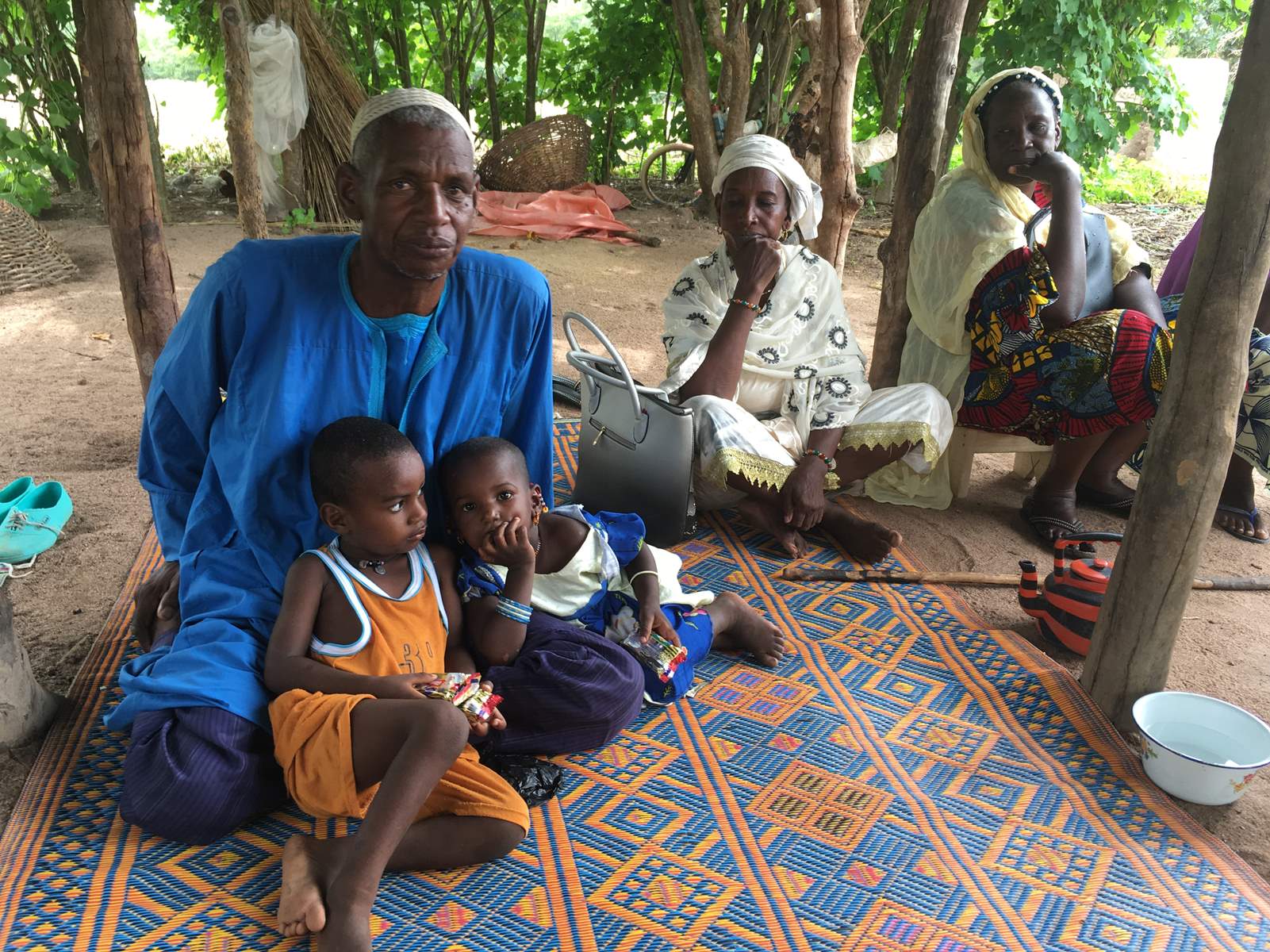
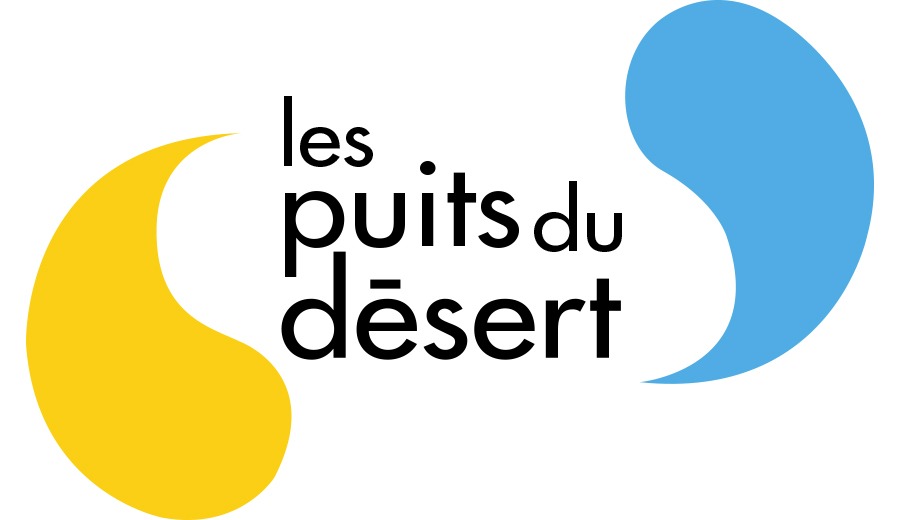
2020
For more than 15 years, the association Les Puits du Désert has been working in Niger in a very desert area where it is one of the few French associations to carry out actions in a locality forgotten by other humanitarian associations.
Its mission is to improve living standards for Tuareg communities. In this predominantly desert country, access to water is very limited and is a major daily challenge for particularly disadvantaged nomadic and sedentary populations. For children, direct access to water relieves them of the chore of fetching water – which often takes several hours a day – and opens the way to school.
Since 2004, 330 wells (pastoral workers’, market gardeners’ or villagers’) have been built or restored in the Agadez region. The association has also enabled the construction of schools, simple but “permanent” buildings (concrete walls, ceilings and roof made of sheet metal) that protect children from harsh weather conditions. The association is also working to set up school canteens and gardens. It is also taking action to empower women and improve access to basic health care. In close collaboration with its local partner, the Nigerian NGO TIDENE, Les Puits du Désert has so far enabled nearly 100,000 highly vulnerable people to benefit from such infrastructure.
The project: The Foundation is providing financial support for the construction of two market gardeners’ wells and two school gardens in two primary schools in the Agadez region, in northern Niger.
By supporting this project, the Foundation is providing direct access to water in these two schools.
Thanks to the construction of these market gardeners’ and counter-wells, the establishment and irrigation of vegetable gardens within these two school structures is finally possible. It can thus help to diversify meals, which are often highly rudimentary, while allowing 345 pupils to explore new fruits and vegetables.
In this extremely poor region, the “Les Puits du Désert” association hopes to improve the attendance record and school results of these young children. The management of the two gardens as well as the pupils’ initiation to market gardening are overseen by the parent teachers association (PTA) and by teachers.
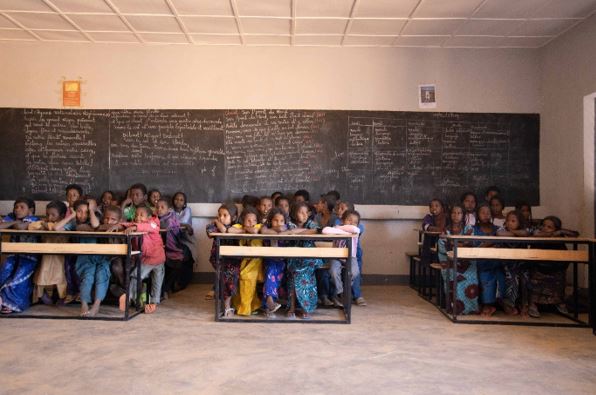
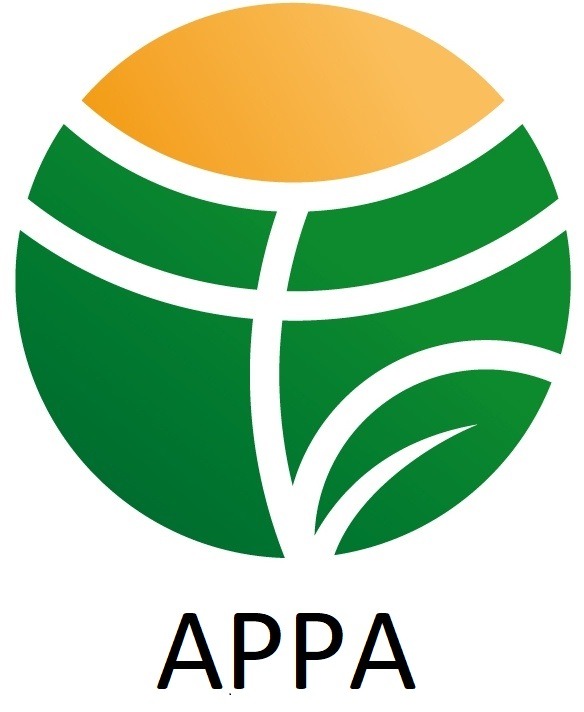
2020
The APPA (Association pour des Petits Projets Africains) is a Burkina Faso development association whose mission is to offer practical solutions to those most in need. Since its creation, the association has been involved in the development of twelve villages in the Hauts Bassins region of Burkina Faso by adopting a systemic approach to help villagers break out of the poverty spiral. Consequently, fifteen primary schools have been built, five rural centres set up and 37 boreholes installed. The APPA has enabled the creation of women’s centres and the development of income-generating activities (beehives and soap factories have been financed). The association also participates in the planting of fruit trees and hedges with the villagers.
The project: The Foundation is supporting a project to strengthen seven canteens in primary schools in the Houet and Kénédougou provinces of Burkina Faso.
With the financial support of the Foundation, seven schools will be equipped with a storage warehouse to ensure better conditions for the conservation of cowpeas, a variety of bean used for children’s meals. These harvests produced by students’ parents supplement the rice and oil provided by the local authorities. This relatively simple building measuring a few m2 will allow schools to optimise the management of their canteens.
Each of the seven schools will be equipped with an improved fireplace, a very efficient alternative to traditional ovens. It saves up to 50% of the wood needed to prepare meals. This closed kiln built from local materials not only reduces the time involved in wood collection and consumption, but also limits the risks of burns and inhalation of toxic fumes for school canteens.
1,800 pupils aged 6 to 16 years are benefiting from this food security project within the school.
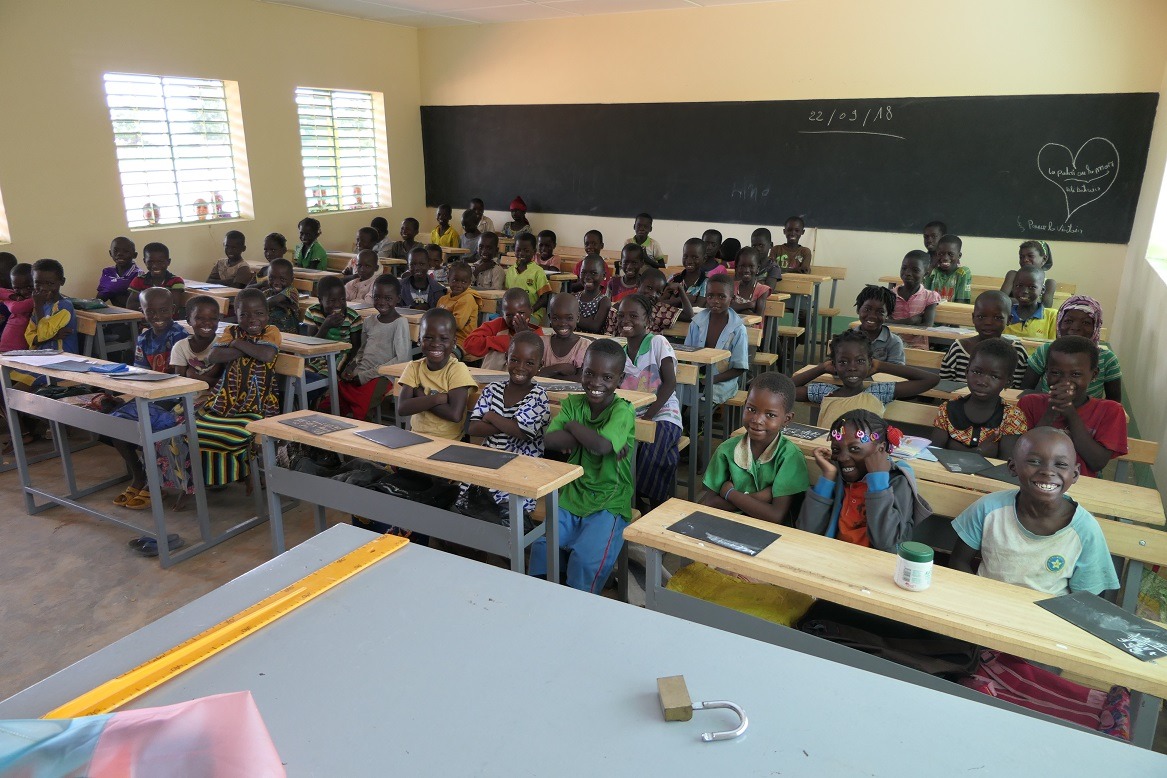

2020
Solidarity N’Dem France is a French association whose aim is to meet the basic needs of the most fragile inhabitants of the N’dem region in Senegal, by providing financial and technical support to the N’dem villagers’ NGO. For the past ten years, the association has focused on improving access to health, education, drinking water, food and agro-ecology.
The project: The Foundation’s support helps to improve the catering conditions for the pupils of N’DEM’s primary and nursery schools and to diversify their meals.
A first phase of the project focuses on the rehabilitation of the primary school canteen and the kitchen of the toddlers’ hut. Important work will be carried out by the association in order to offer the 180 students healthier and more comfortable catering conditions.
A second component aims to sustainably improve the diet of these schoolchildren by promoting the local supply of vegetables, while introducing students to market gardening. A market gardening area with a total surface area of over 300 square metres will be set up and equipped within the primary school to supply the school canteen with organic fruit and vegetables. The nursery school will also have a vegetable garden with a surface area of 200 square metres.
Harvests and meals will be provided by school officials and volunteer mothers, who are highly involved in making this project a success.
This project aims to distribute two meals per week to the elementary school’s 150 pupils and one daily meal to the nursery school’s 30 students.
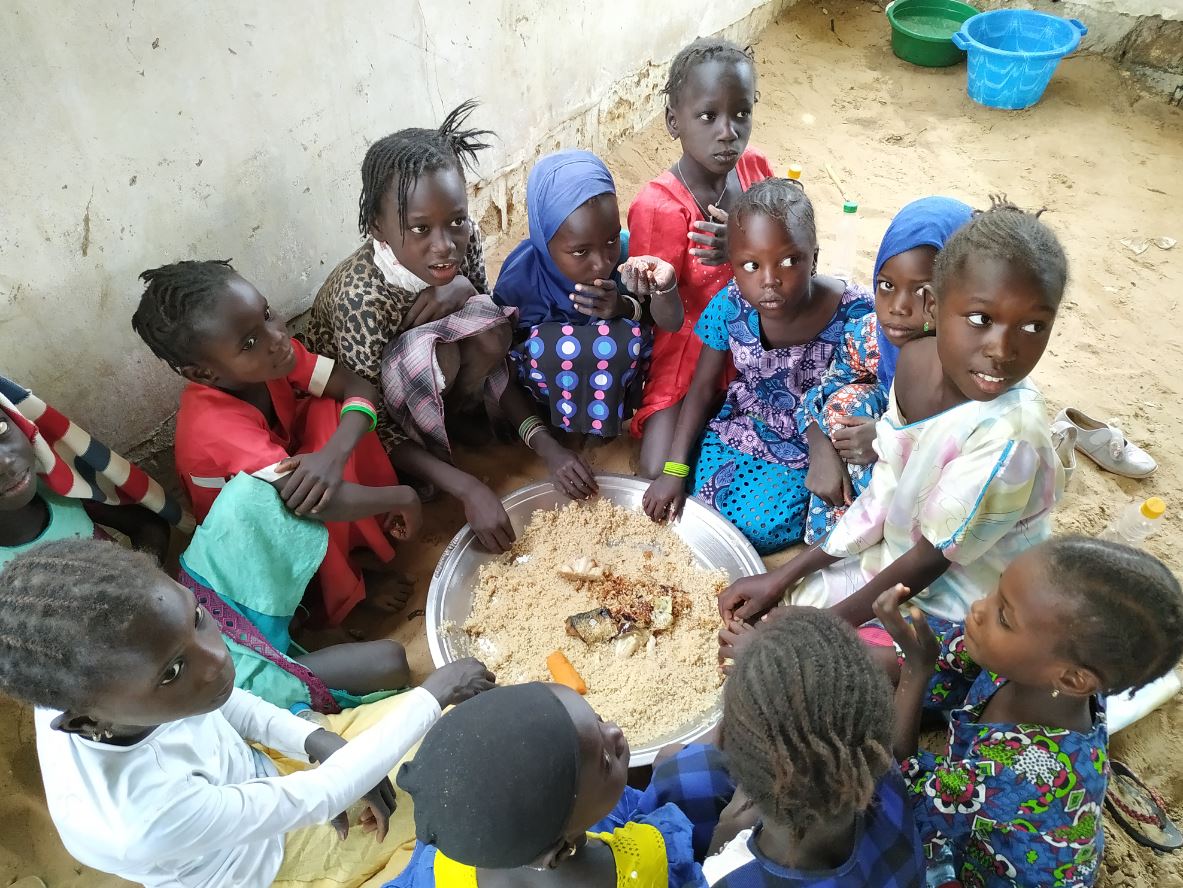
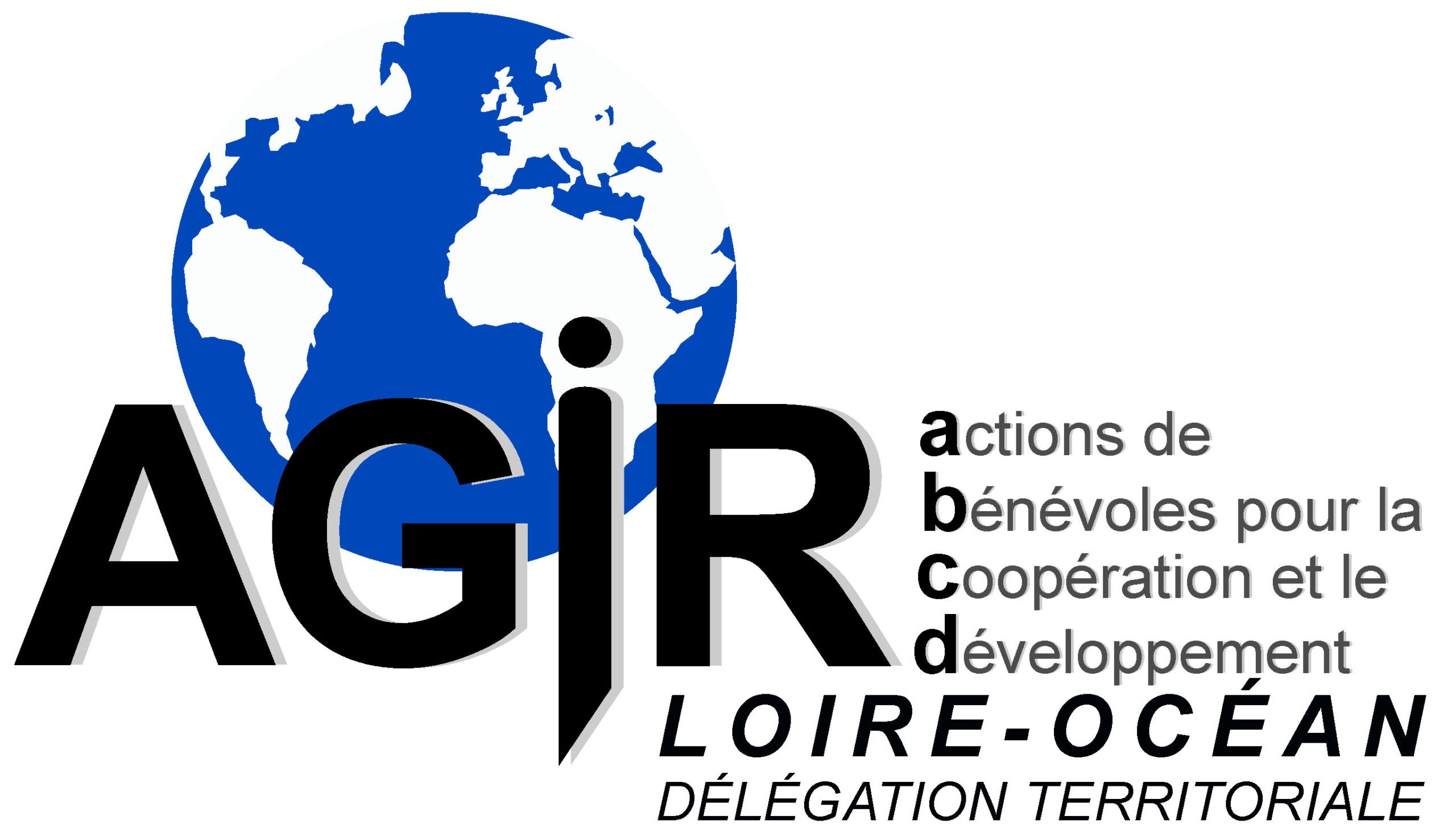
2020
The French NGO AGIR abcd, which is recognised as being of public utility, aims to promote the development and cooperation of the most vulnerable people in France and abroad, paying particular attention to education and integration. The NGO is made up solely of retired volunteers, grouped into branches spread throughout France. Since 2009, Agir abcd LOIRE OCEAN has worked in the Hauts Plateaux region of Madagascar with around fifteen public schools in order to improve living standards for the poorest children in a sustainable way. In Madagascar, the lean season is often accompanied by worsened nutritional standards for families and the closure of school canteens. Producers have sold their entire harvest and poor storage conditions make it difficult to predict this delicate period.
The project: The Foundation is supporting a programme to consolidate and sustain ten school canteens in Madagascar, by equipping kitchens and developing local agro-ecological gardens.
The Bel Foundation’s financial support enables each of the the project’s ten schools to receive a package of complementary building measures: shelters for stocks, sanitised places for kitchens and utensils, as well as improved cooking stoves that reduce deforestation and the time spent collecting wood.
In collaboration with the French NGO FERT, which is long-established in Madagascar, an agricultural adviser will also operate within schools to train parents and teachers in the management of vegetable gardens, in order to diversify the supply of canteens.
150 parents and 30 teachers will thus be trained in agro-ecology. Gardening equipment and seeds will be distributed to them.
By supporting this project, the Foundation enables the association AGIR abcd LOIRE OCEAN to provide food security to 2,350 children by preparing and distributing a daily meal throughout the year, in particular during the lean season. Beyond the school setting, 450 farmers will receive specific support in agro-ecology and 50 relay farmers will be trained, so they can then share good practices with neighbouring communities.
This project also contributes to the region’s agricultural development and lasting improvements in local people’s nutrition.
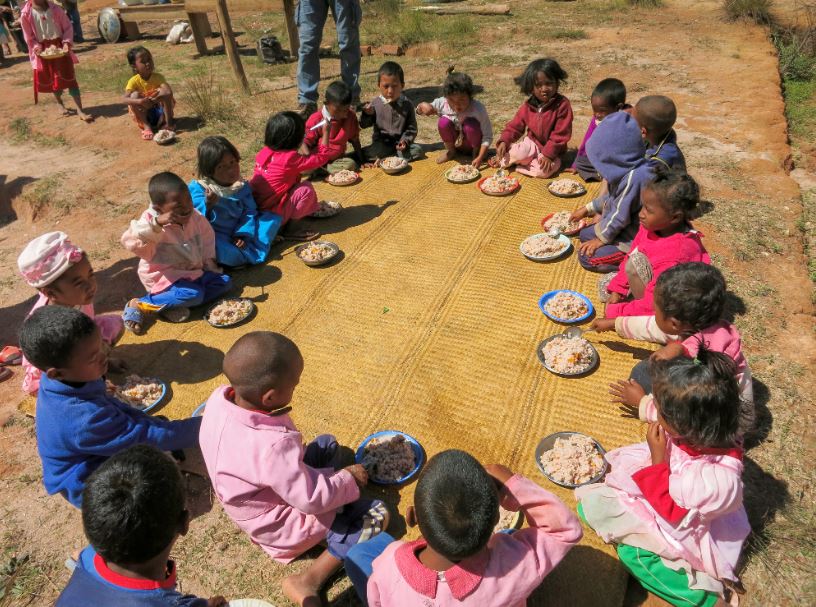
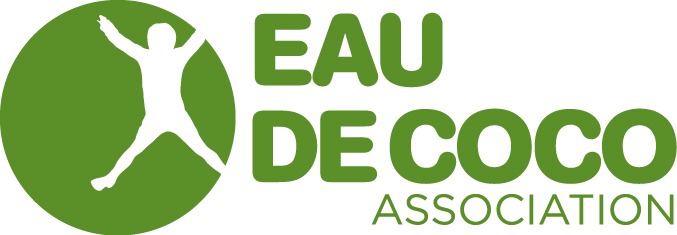
2020
Created in 2013, Eau de Coco is a French association whose mission is to improve the living standards of marginalised people, focusing on education and the fight against child labour, health and the environment. For the past two years, through the Bel Avenir Programme, Eau de Coco has been distributing Moringa leaf powder to canteens in the Tulear region of southern Madagascar. In this region, families live in great poverty. Deprived of a varied and balanced diet, they often suffer from various deficiencies, especially young children.
The project: Given the seriousness of the COVID 19 health crisis in Madagascar, the Foundation is providing exceptional additional aid to support the emergency responses that the Eau de Coco association has had to put in place, thus enabling the full implementation of the project it has been supporting since 2019.
This is a Moringa supplementation programme targeting meals distributed in five school canteens in the Tuléar region. This tree is known for its nutritional virtues.
With the health crisis that hit and closure of schools in March, emergency food kits containing Moringa had to be distributed. In this context, although Moringa production has been maintained, training in Moringa production and processing for local producers as well as the medical and nutritional monitoring of children, initially planned in partnership with Kinomé, had to be interrupted and/or postponed.
By renewing its support, the Foundation is making it possible to effectively implement these two components, which are essential to the programme’s success.
To find out more, explore the project supported in 2019 : here
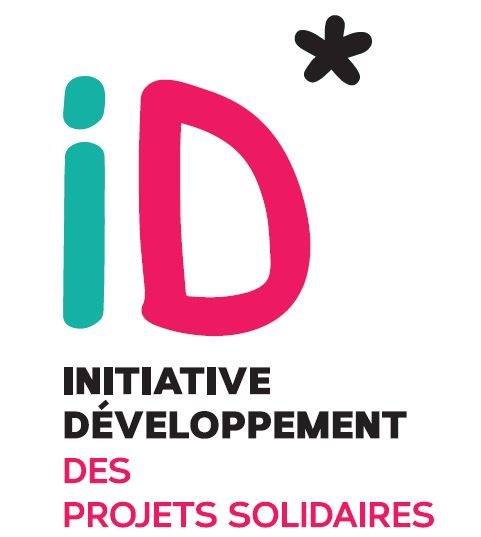
2020
International development NGO Initiative Développement has the mission of strengthening local communities’ self-sufficiency so they can build and implement solutions to the social, environmental and economic challenges of their regions by themselves. For 25 years, the NGO has been active in the fields of health, environmental protection and access to energy, water and education.
In the Fatick region of Senegal, the need for energy resources is high and sustainable substitutes limited. Wood and charcoal remain the main sources of energy for cooking food, leading to increased deforestation.
In collaboration with the Fatick Regional Development Agency, the NGO has been implementing a project since 2014 aimed at finding innovative solutions to fight climate change and improve living standards for the region’s inhabitants.
The project: As part of this vast environmental project, the Foundation is financing improvements to 12 school canteens in the Fatick region through the establishment of Improved Homes.
Through its financial support, every school can be equipped with cookers that consume less wood and coal. Beyond the economic and ecological benefits, these cookers help protect the health and safety of stoves and improve the quality of meals distributed to children.
Alongside environmental awareness actions, training in nutrition and in the use of Improved Homes is organised for children and families.
By supporting this project, the Foundation enables each of the 2,835 pupils aged between 6 and 13 years old to benefit from a daily meal and better understand the environment in which they live. In the long term, this project aims to safeguard the food supply of school canteens, protect the environment and improve living standards for inhabitants of the Fatick region.
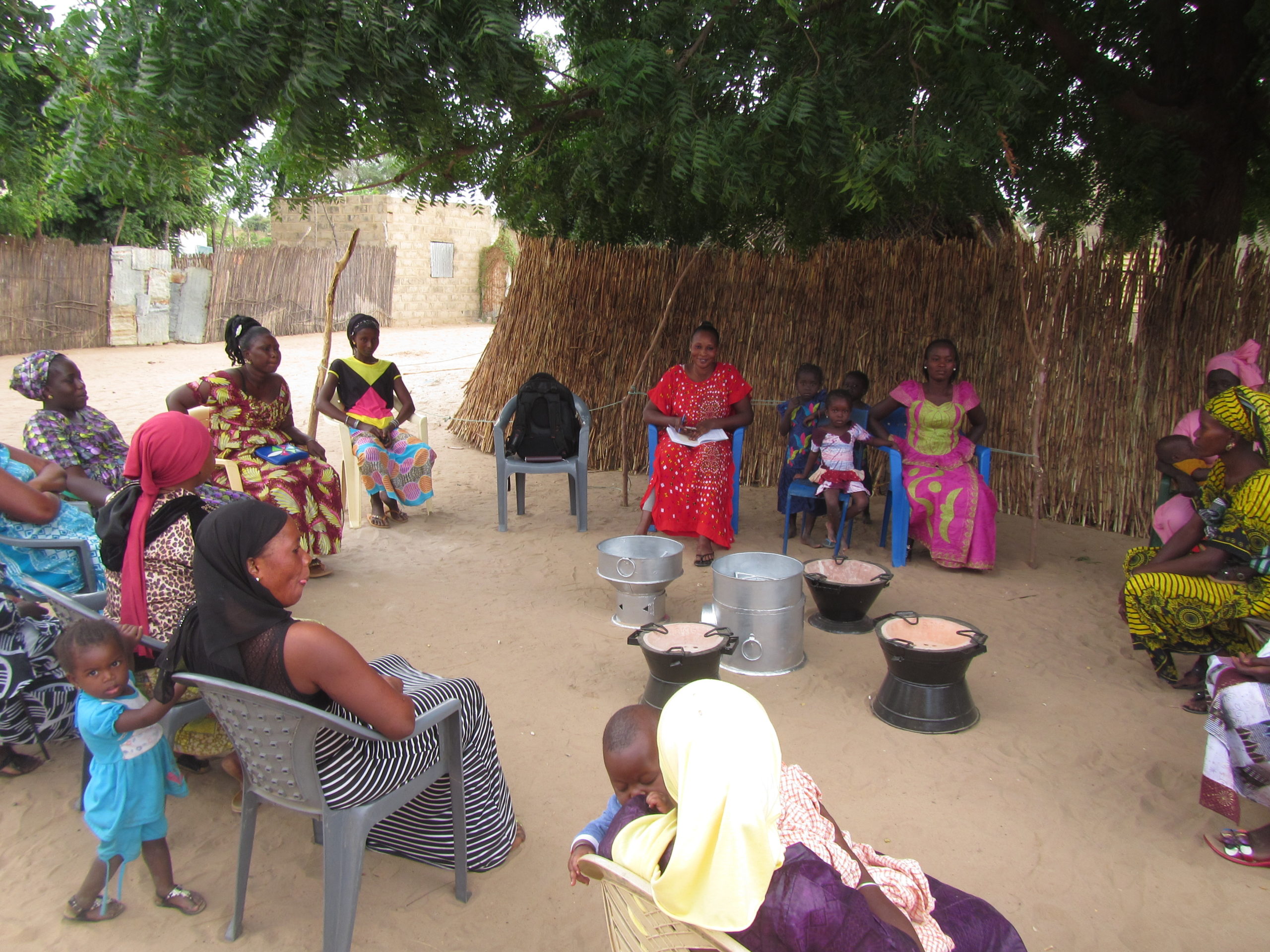

2020
For over 60 years, SOS Villages d’Enfants has had the mission of taking in orphaned or abandoned children or children whose family situation means they require foster care. The association is active in France and provides operational, administrative, strategic and financial support to several countries, particularly in West Africa, South-East Asia, Madagascar and Haiti. Having operated in Haiti for 40 years, SOS Villages d’Enfants is one of the last French NGOs to pursue its mission on the ground, among particularly deprived individuals. In order to take care of isolated children and to foster resilience among particularly vulnerable Haitian families, SOS Villages d’Enfants manages three SOS Villages d’Enfants branches and has developed a Family Reinforcement Programme (FRP) in Haiti.
The project: the Foundation’s support serves to strengthen 14 school canteens in Cap Haïtien by equipping kitchens and training mothers in nutrition as well as developing local market gardening activities.
At the heart of the project, 30 mothers are trained in nutrition, meal preparation and school canteen management. The project also provides support for about a hundred parents in market gardening for two consecutive years. Thanks to this project, 900 children between the ages of 3 and 6 will be able to enjoy two balanced meals every day. By involving families in the supply and preparation of meals, SOS Villages d’Enfants and the Foundation aim to secure lasting improvements in the quality of meals distributed to students, food autonomy for the 14 community centre canteens and financial independence for families in Cap Haitien.
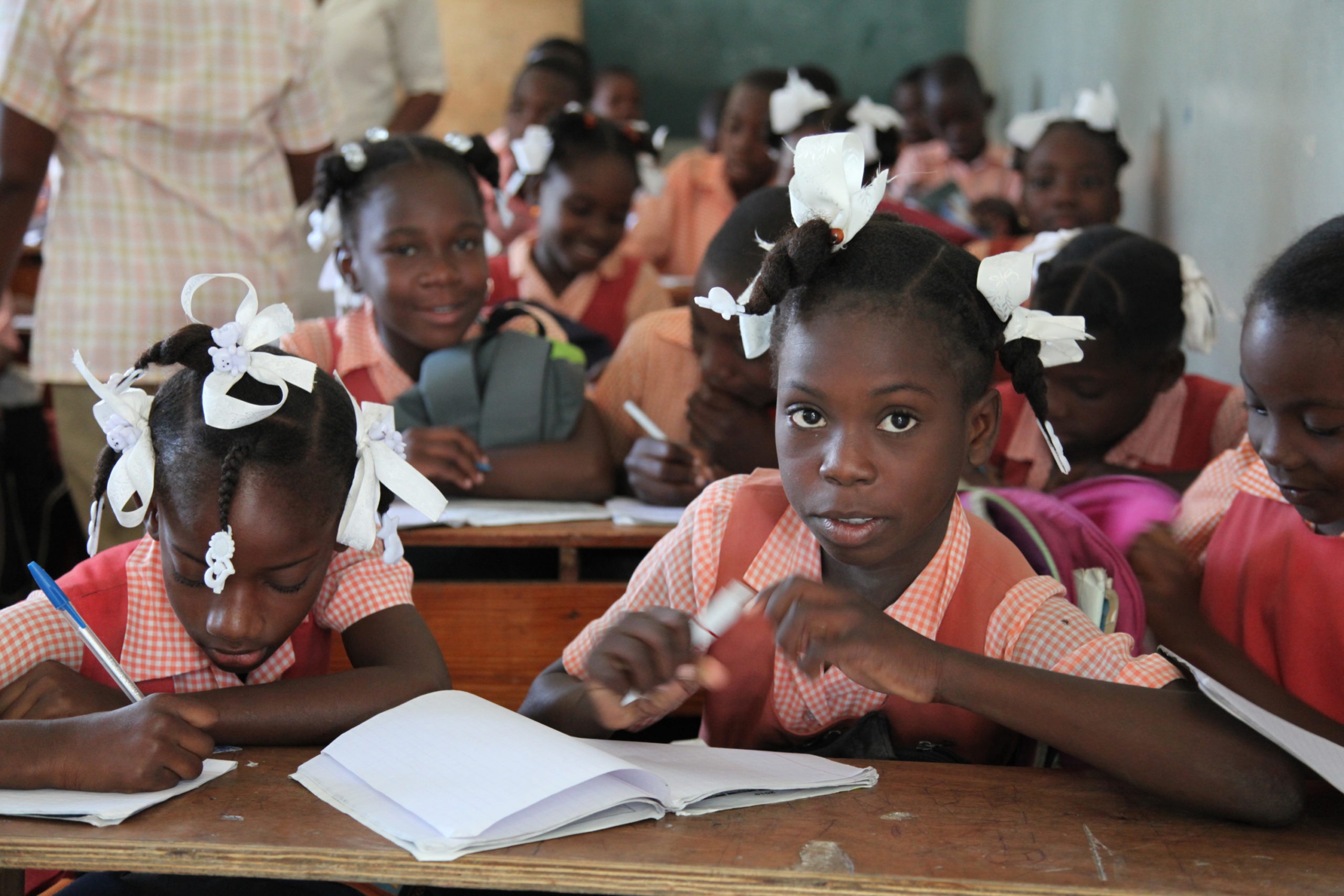

2020
La Trousse à projets is the French education system’s crowdfunding platform, dedicated to the educational projects of school teams and pupils, from nursery school to high school. It includes a solidarity section run by the Fonds de dotation pour une École Solidaire et Innovante (FESI) (Endowment Fund for a Supportive and Innovative School), which gives a helping hand to the projects that need it most and thus gives the same opportunities to everyone, particularly to projects run by schools located in REP, rural or isolated areas.
The project: The Bel Foundation has decided to provide financial support for this solidarity section of the Project Kit, to help carry out around twenty projects in 2021 on the theme of food.
Carried out by primary and lower secondary schools across the country, these projects to raise awareness, provide support and encourage creativity and discovery are all unique: a discovery class on a farm, the creation of a vegetable garden, an educational garden, an aviary or a henhouse, meetings with farmers, beekeepers or cheese-makers, the creation of a sorting area in the canteen, the creation of a culinary event to highlight local produce: each year there are many food-related projects, all unique.
Their objectives are just as varied: raising awareness of zero food waste, discovering trades, learning about the food chain, discovering the issues surrounding intensive farming, an introduction to permaculture, learning to cook, etc. Where does our food come from, how is it transported and what can its second life be?
These are just some of the questions that these local projects aim to answer, so that the pupils become eco-citizens who are aware of the importance of good food.
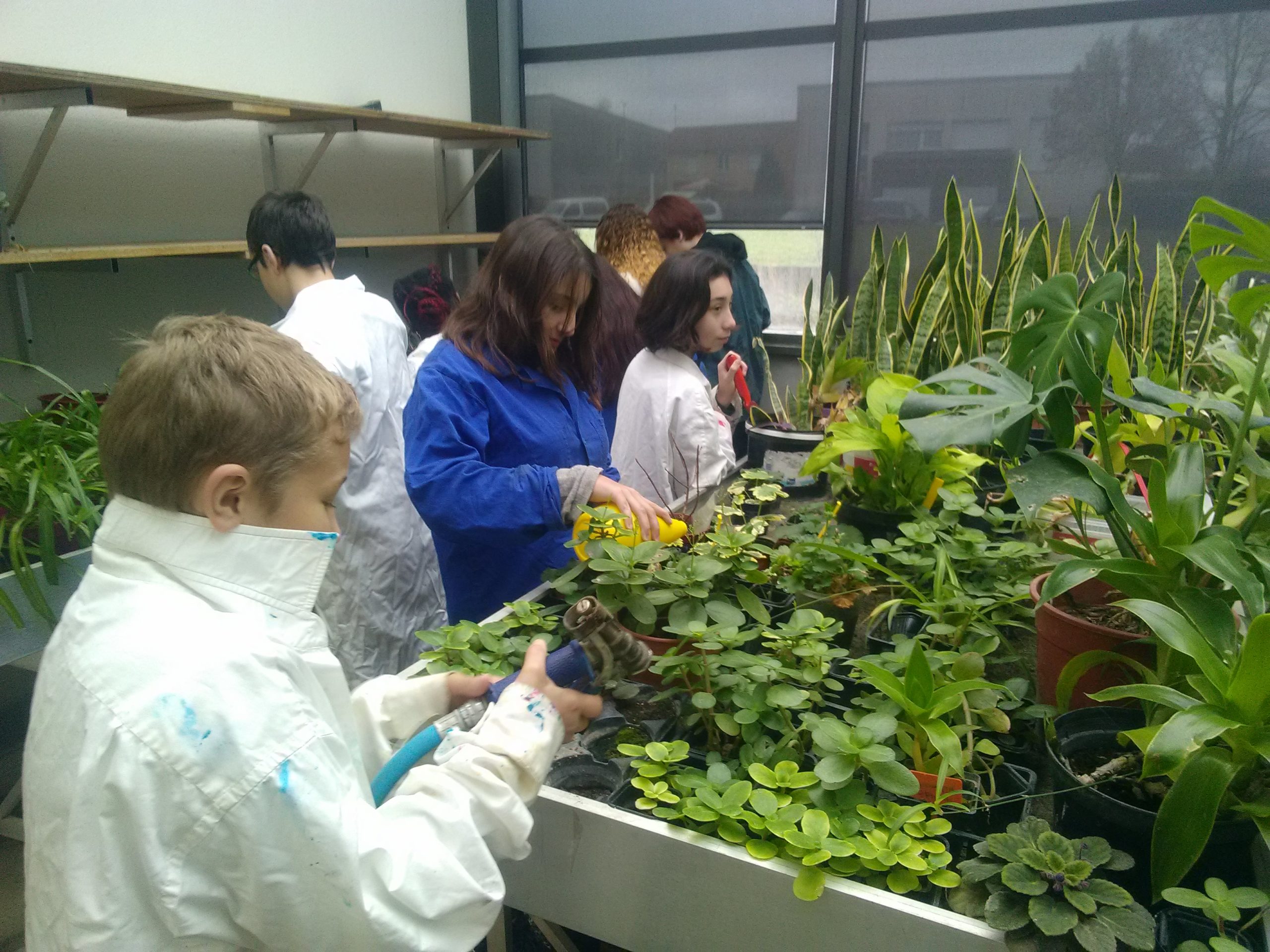
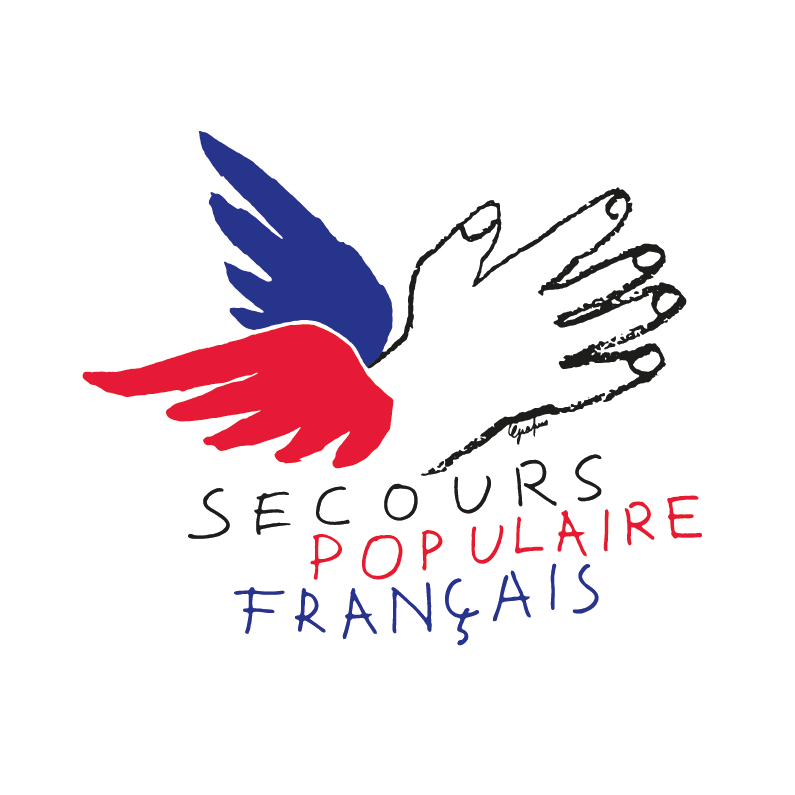
2020
In 2020, during the health crisis and the ensuing economic crisis, Secours populaire français recorded an explosion in requests for food aid, with new categories of French people falling into precarious situations.
The facts are alarming: Today, 1 child in 5 lives below the poverty line in France. During the first containment period (March to June 2020), almost 1.3 million people sought help from Secours populaire français, 45% of whom were previously unknown to the association. The closure of canteens during the first months of confinement considerably increased the food insecurity of some vulnerable families.
The project: The Bel Foundation wanted to support the work of Secours Populaire Français in distributing the massive amount of food aid it continues to provide.
This support from the Foundation will help to run the Secours populaire français network of outlets over the course of 2021, enabling them to develop simple, practical food aid initiatives for the benefit of families.
The association’s volunteers know that while food aid is essential for people in difficulty, it is not enough to restore their self-confidence. Secours populaire français takes a global approach to the problems of poverty, and wherever possible strives to put in place support initiatives that give priority to listening, contact and support in all areas.
It’s within this framework that cooking workshops and workshops to raise awareness of a balanced diet will be offered to the families welcomed at the centres, as well as the creation of solidarity gardens and visits to farms. In this way, each family and their children will be able to find the food aid they need, as well as meetings and activities based around food, all of which help to build social links.
SPF © Bruno Manno
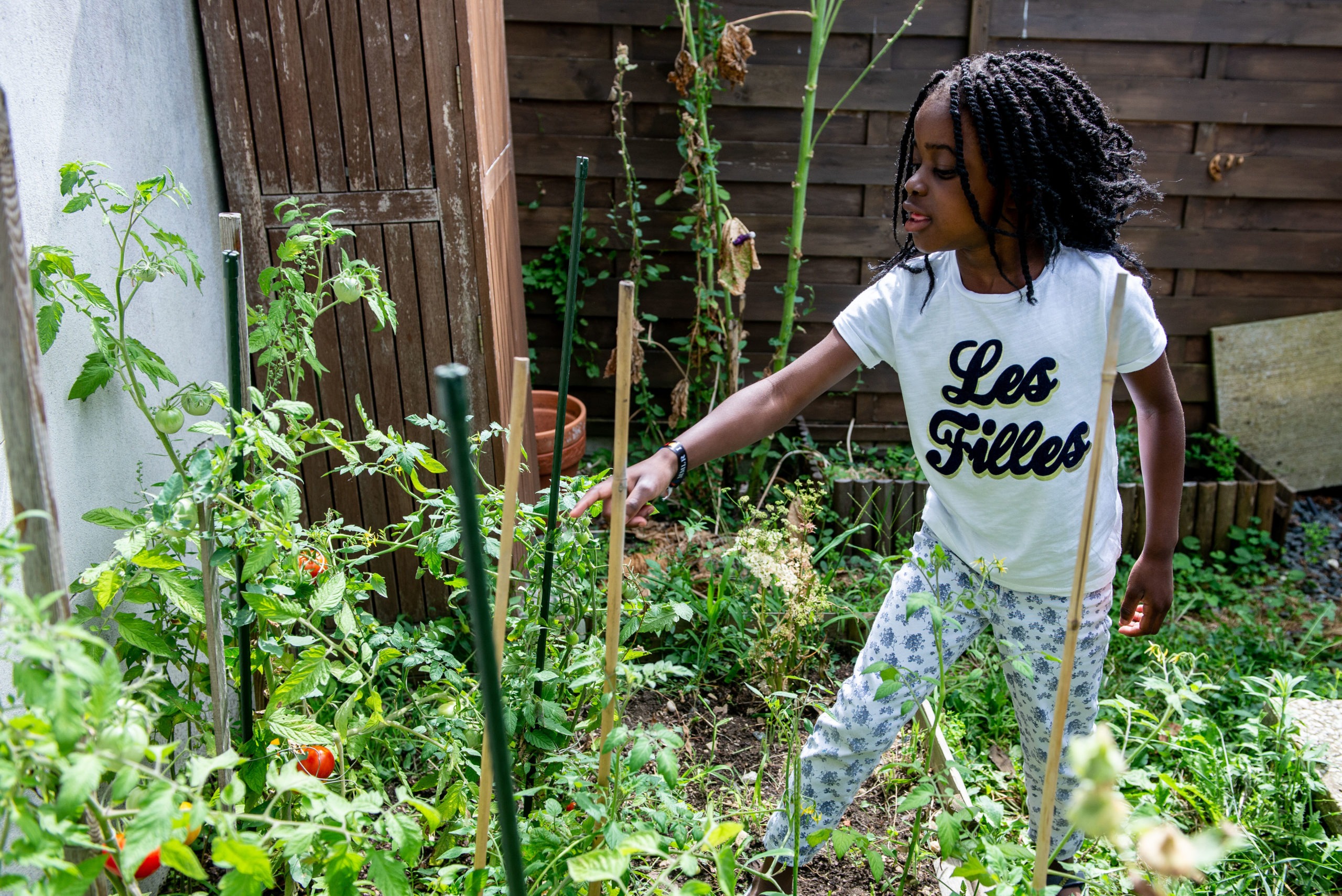

2020
On 4 August 2020, the city of Beirut suffered an unprecedented explosion, causing thousands of casualties and considerable damage. In a country already weakened by an economic crisis and the effects of the covid-19 pandemic, civil society quickly mobilised to come to the aid of the population and meet urgent and vital needs.
Operating in Lebanon since 2016 and specialising in the development of child protection, the French association Les Enfants de la Méditerranée has launched an appeal “SOLIDARITÉ LIBAN: AIDONS LES ENFANTS VICTIMES!” to help children affected by the explosion.
As a reminder, more than 180 schools were damaged or destroyed by the disaster, severely affecting the start of the new school year and the 2020 school year for more than 80,000 children.
It was against this backdrop that the Bel Foundation decided to respond to the association’s appeal, focusing its efforts on longer-term reconstruction needs.
The project: The Foundation’s support is helping to renovate the canteen at a tutoring centre in Beirut.
In the Sin El Fil neighbourhood, the association Les Enfants de la Méditerranée, alongside its local partner AFEL (Association du Foyer de l’Enfant Libanais), runs an after-school centre for children. At this centre, the children receive a meal, educational support from volunteers and psychological support, as well as a few hours’ recreation and educational games. Destroyed by the explosion, the centre’s canteen needed new equipment and fittings if it was to continue to offer lunch and snacks to the 120 children aged between 3 and 14 who attend every day. Thanks to the Foundation’s support, the children will once again be able to eat in hygienic and safe conditions.
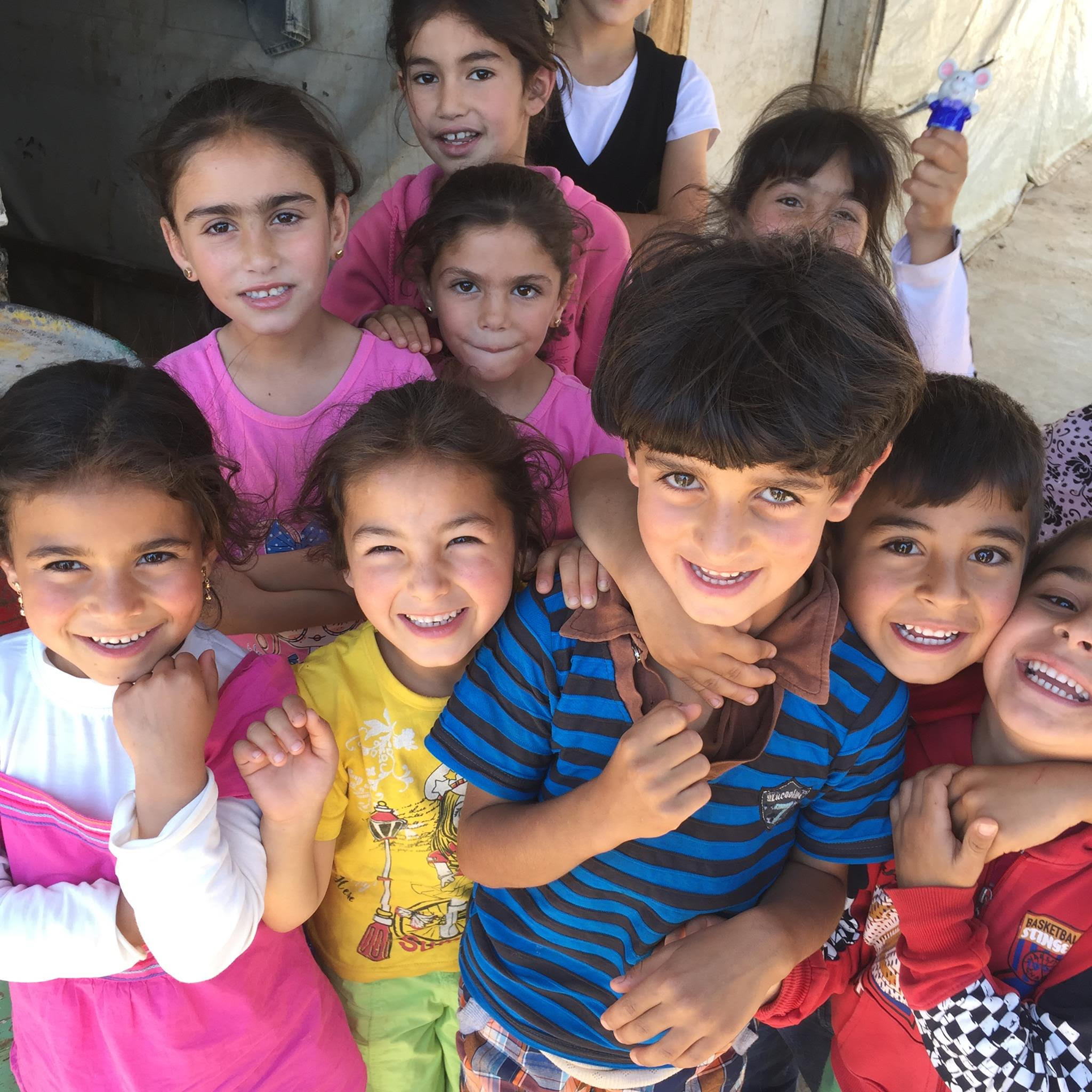
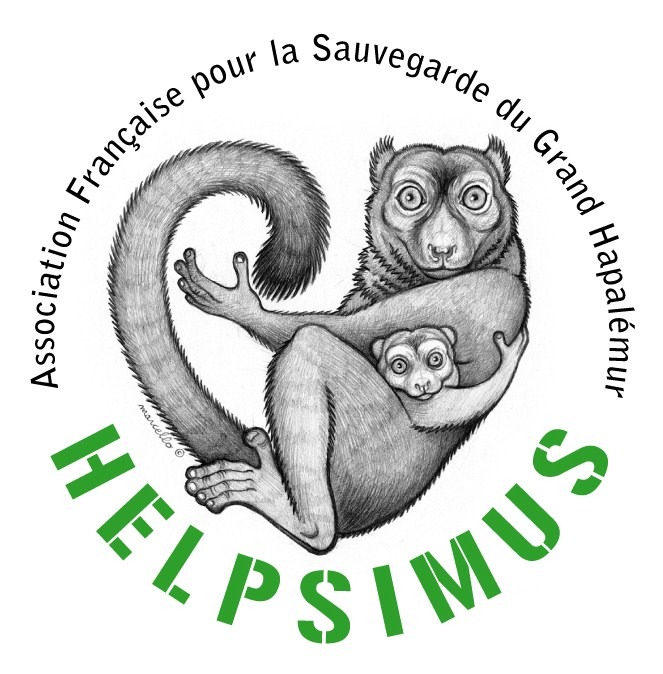
2020
Founded in 2009, the French association Helpsimus has set itself the mission of safeguarding the Greater Hapalemur (Prolemur simus) in Madagascar through the Bamboo Lemur programme, which combines scientific monitoring of the species, protection of its habitat and development aid for villages bordering groups of Greater Hapalemurs. As part of this scientific programme, Helpsimus has made education its priority.
Helpsimus provides funding for the education of children in 5 Fokontany (=Malagasy regions) located in the immediate vicinity of the habitat of the great hapalemurs. In these remote rural areas, people live below the extreme poverty line and practise subsistence farming. During the “hunger gap” between the end of the consumption of the previous harvest and the next harvest, when malnutrition is at its worst, school absenteeism rises sharply. Children have to work to help their parents or are unable to go to school because they do not have balanced meals. Against this backdrop, Helpsimus opened its first canteen in 2016 to distribute daily meals to village children during the lean period, followed by a second in 2020. By 2021, the association aims to open 3 new canteens.
The project : The Foundation responded to an appeal from the Helpsimus association to finance the construction and equipping of three primary school canteens in Madagascar.
The aim of the project funded by the Foundation is to provide the 350 pupils in these 3 schools with a daily meal during the four months of the year that correspond to the lean months, thereby helping to combat malnutrition and the drop-out rate among children. By being better nourished, the children pay more attention in class and thus increase their chances of doing better at school.
The school canteens are also an effective tool for supporting the development of local communities. The association is working on sustainable solutions to ensure that canteens are supplied in the long term, for example by producing rice or developing school vegetable gardens in each school. These solutions are aimed at improving the diversity of children’s menus, but are also a source of income for local people.
To find out more about the project, click here
© S. Meys
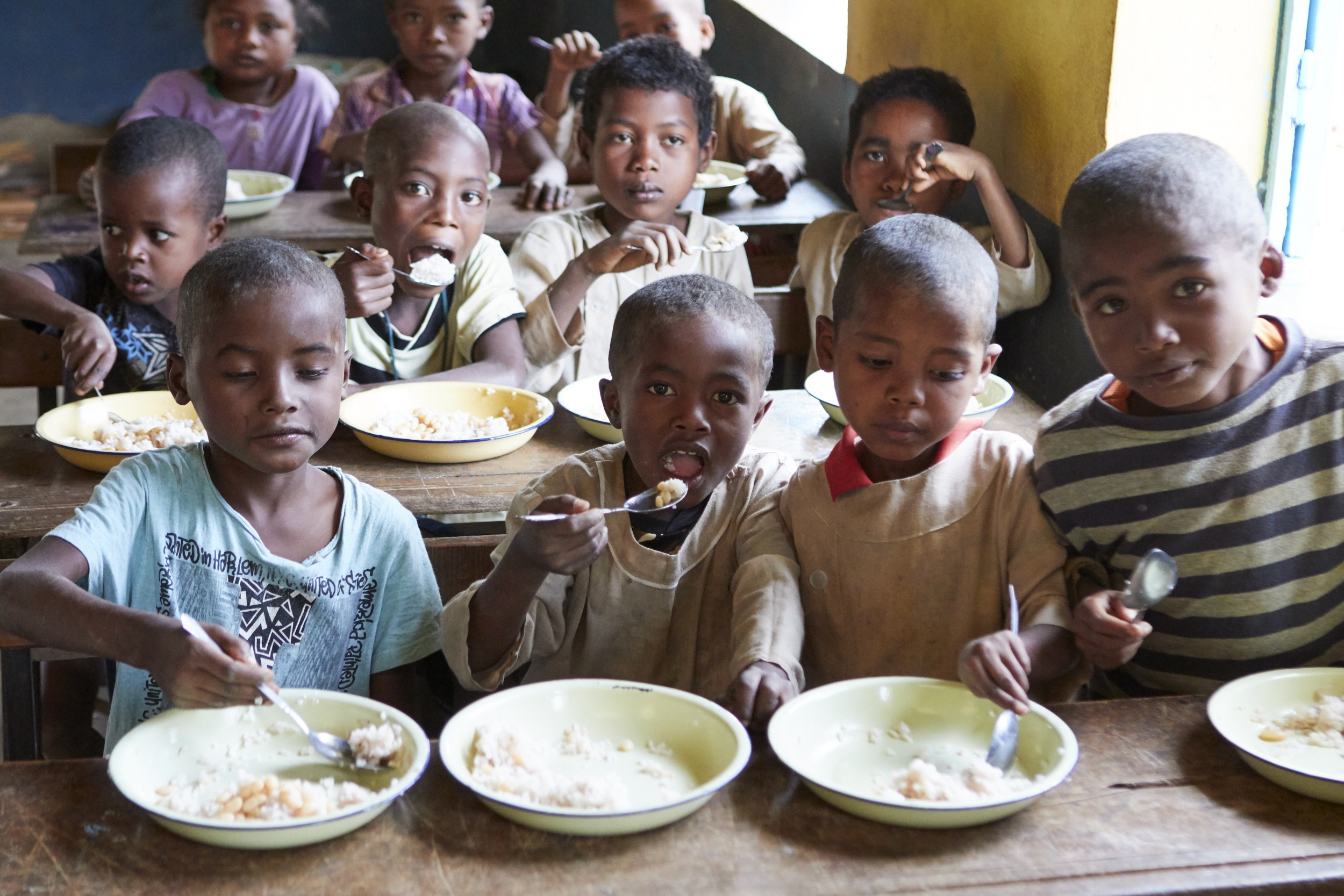
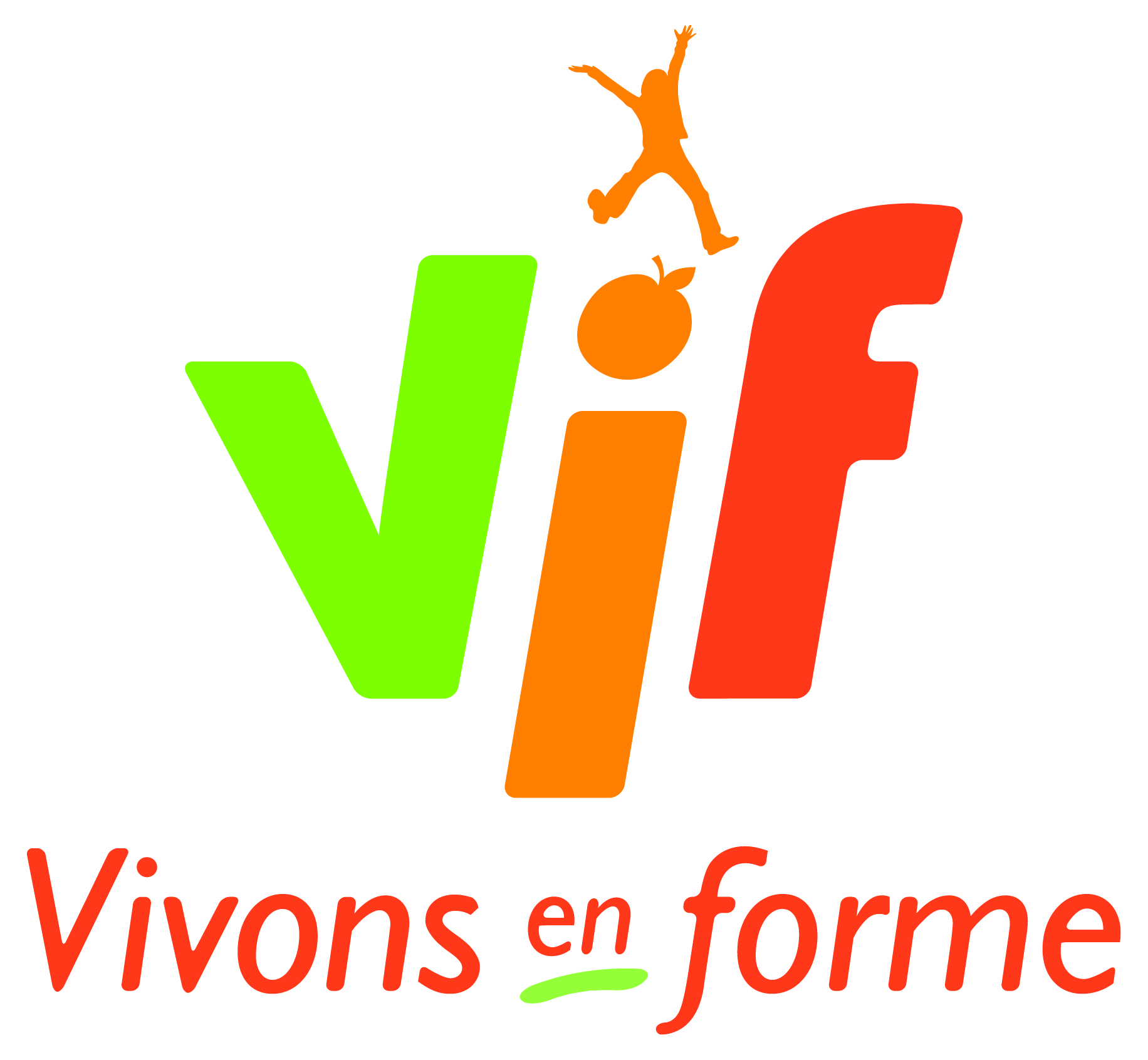
2020
For almost 30 years, the VIVONS EN FORME- VIF® programme, supported by the Association Fédérons Les Villes pour la Santé (Let’s Federate Towns for Health), has been working to reduce childhood overweight and obesity and, more broadly, to provide practical solutions to promote the health and fitness of children and their families, particularly the most vulnerable. More than 250 local authorities in France have now joined the VIF® programme.
The method is educational, positive and participative, and seeks above all to encourage children to adopt healthier lifestyles, and to give them positive experiences without ever stigmatising them. Two recently published studies show the effectiveness of the VIF® approach in reducing the excess weight of children who have benefited from the programme.
With the help of intermediaries working in close coordination in the towns and cities where it is deployed, and more particularly in disadvantaged neighbourhoods, the VIF® programme provides simple, practical solutions, focusing mainly on good practice in terms of physical activity, diet, sleep and well-being, to help children stay healthy and fit.
The project supported: The Bel Foundation wanted to contribute to the roll-out of Vivons en forme® by setting up a specific “Envies de Cantine” project in three French towns.
In these three beneficiary towns, the programme focuses on a key moment in children’s day: the school canteen.
After carrying out an inventory of school catering in these 3 towns, the association will support the service and supervisory staff, offering them the opportunity to improve their practices through training on the subject, tools (booklet of basic concepts and workshops, “question d’acteurs” leaflet, posters, etc.) and ultimately, to improve this mealtime. Among the essential subjects that will be addressed are taste awareness, good portions, reducing food waste, the rhythm of meals, etc.
In keeping with the VIF® method, which focuses on the child’s entire environment, materials for parents will also be made available.
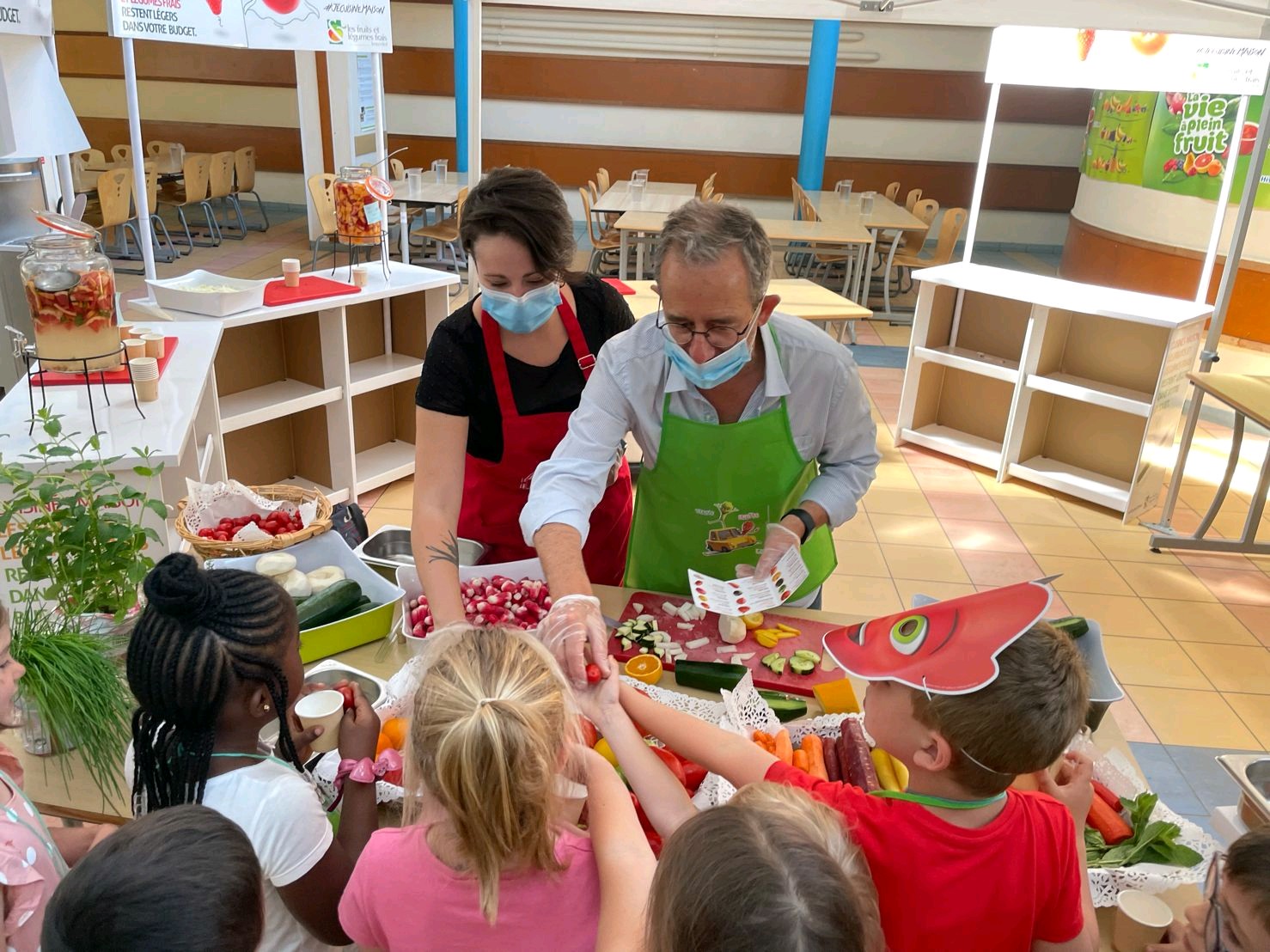
To find out more, read the testimonies of Isabelle Fiévet, Executive Director of the Bel Foundation and Caroline Chesneau, Nutrition Director of the Bel Group: here
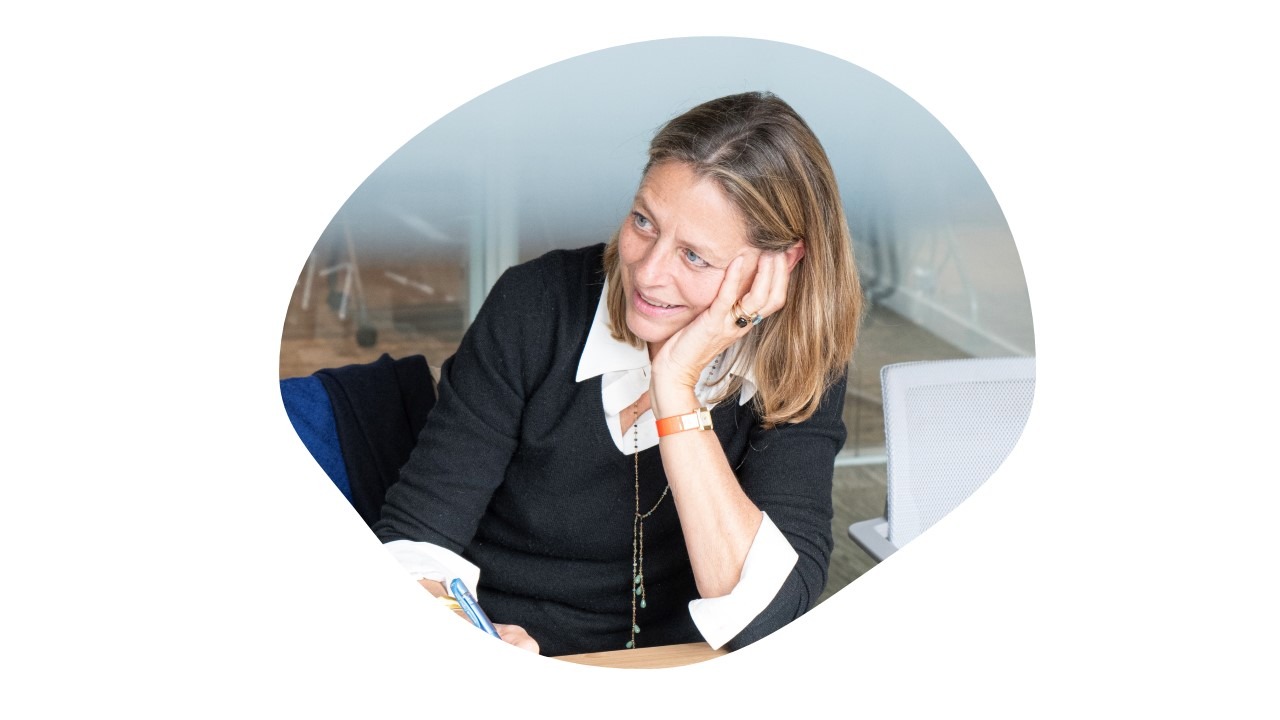
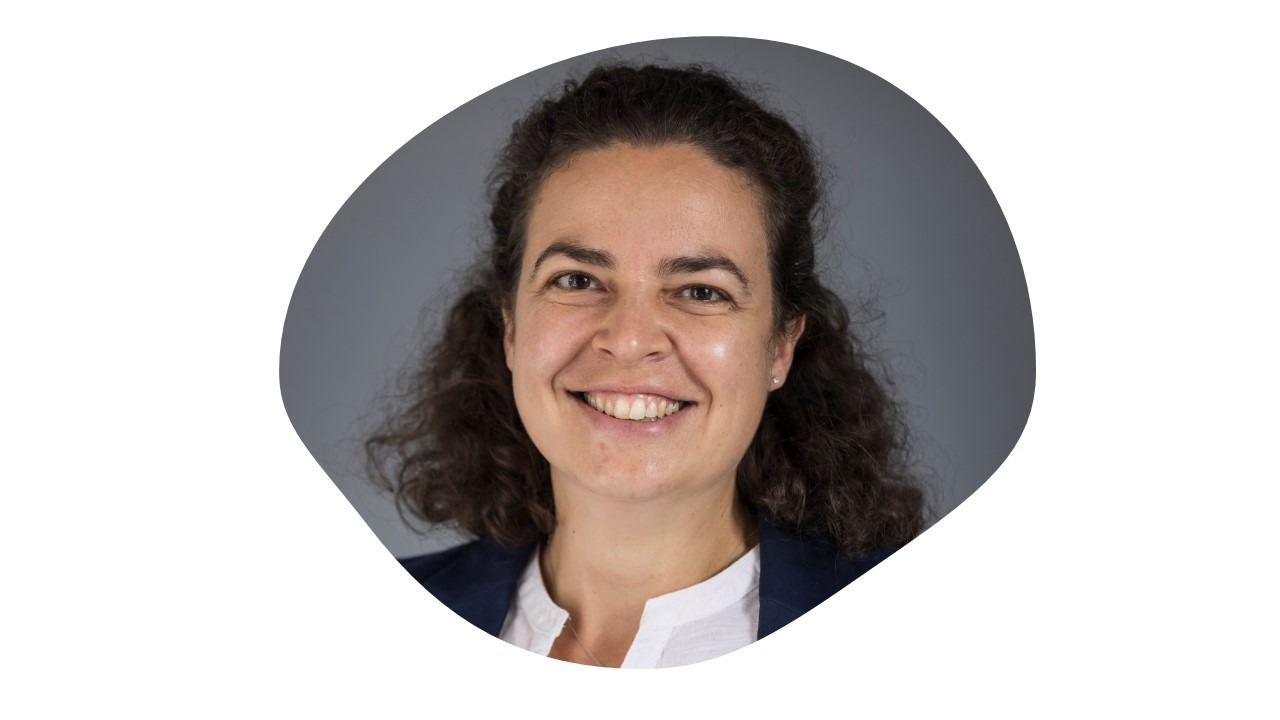
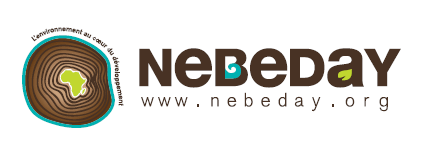
2020
Nébéday is a Senegalese environmental protection association that works for the participative, sustainable management and greater exploitation of the country’s natural resources. Setting up professional sectors, developing income-generating activities for women, as well as educating children and raising their awareness of environmental protection issues and reforestation, are at the heart of its day-to-day work. In particular, Nébéday is working to promote the Moringa plant, considered to be the “tree of life” and renowned for its high nutritional value thanks to its iron and protein content. The association operates in the Fatick region, located in the Sine-Saloum delta, where there are regular droughts and salinisation of the soil, and where almost 20% of children under the age of 5 are malnourished.
The project: The Foundation’s support is helping to consolidate the Moringa sector in Dakar and improve the nutrition of pupils in 3 schools.
This project is a continuation of the project supported by the Foundation in 2019, which enabled the association to organise the production, processing and distribution of Moringa powder in a pilot school canteen.
By renewing its financial support in 2020, the Foundation is helping the association to continue introducing Moringa powder into the meals distributed in three schools in Senegal, to improve the nutrition of pupils on a daily basis.
To achieve this, Nébéday’s actions consist of strengthening the Dialaba agroforestry perimeter and continuing training within a women’s cooperative to ensure ongoing Moringa production. As part of this project, the women are specialising in the production of a delicacy made from Moringa, baobab and sugar, to encourage children to take a greater interest in the plant. Nurseries of fruit trees and Moringa are also set up in each of the schools. Every day, the 418 pupils aged between 7 and 12 receive a meal enriched with Moringa powder (5g per day per child) and Moringa-based sweets. In addition, an educational manual has been designed for pupils, their parents and teachers, to encourage them to plant and eat Moringa.
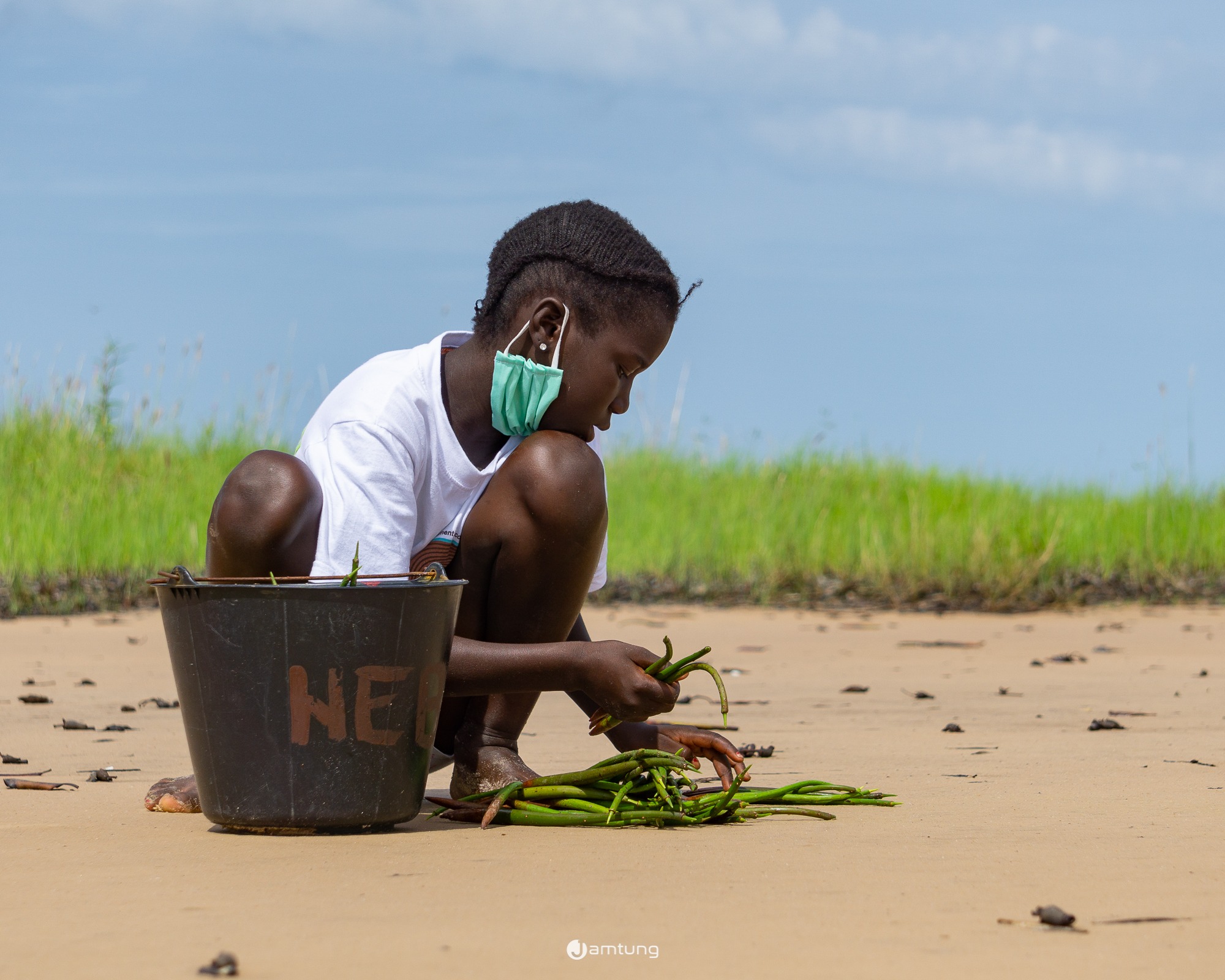
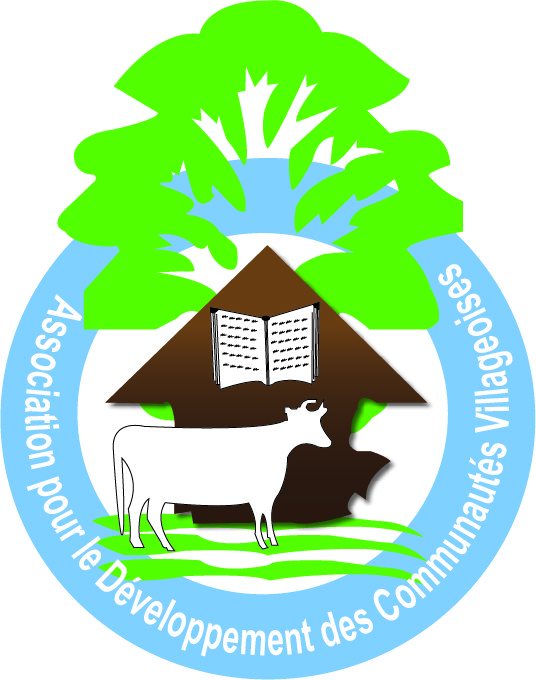
2020
Created in 2014, Hampanli is a secondary school on the outskirts of Fada N’Gourma, Burkina Faso’s 5th largest city. It currently accommodates almost 500 pupils, aged between 12 and 20. It is run by the Association pour le Développement des Communautés Villageoises (ADCV), an association under Burkina Faso law that supports numerous projects in the fields of education, the protection of young girls, health, water and agriculture.
Supported since its creation by the CAJJED Family Foundation, which has financed a large part of its infrastructure, Collège Hampanli still needed a specific building to organise the school canteen and offer one meal a day to each pupil. The aim is to build a covered, enclosed and equipped space that will provide a more comfortable environment for the pupils.
The project : The Bel Foundation wanted to help consolidate this secondary school and finance the construction of this refectory of almost 200 square metres.
The meals will be organised by a committee made up of parent representatives, student representatives and representatives of the school administration. Women will be responsible for preparing the meals on site. These meals will be enriched by products from the botanical garden set up within the school and managed in part by the students.
